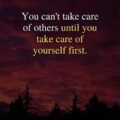If you’re too innocent, the first thing you will lose is respect.
This quote suggests that excessive innocence or naivety can potentially lead to a loss of respect. Here’s a breakdown of the key elements:
- Innocence: Innocence typically refers to a lack of experience, sophistication, or awareness of the complexities of life. Someone who is too innocent may not be fully aware of the ways of the world, potential pitfalls, or the motives of others.
- Loss of Respect: The quote implies that if an individual is excessively innocent, they may be perceived as vulnerable or easily taken advantage of. In certain situations, people might interpret innocence as a lack of understanding, discernment, or the ability to navigate social or professional dynamics effectively.
- Professional Context: In a professional setting, being overly naive might lead to poor decision-making or an inability to discern the intentions of others, potentially undermining one’s credibility and respect.
- Social Context: In personal relationships or social interactions, too much innocence might make an individual susceptible to manipulation or exploitation, which can erode the respect others have for them.
- Balance: The quote suggests that there needs to be a balance between innocence and awareness. While innocence can be endearing and refreshing, it’s important to also develop a level of worldly wisdom and street smarts to navigate various situations successfully.
In essence, the quote underscores the importance of not being overly naive or innocent, especially in contexts where a certain level of awareness and understanding is expected. Striking a balance between innocence and practical wisdom is crucial to maintaining respect in both personal and professional relationships.








